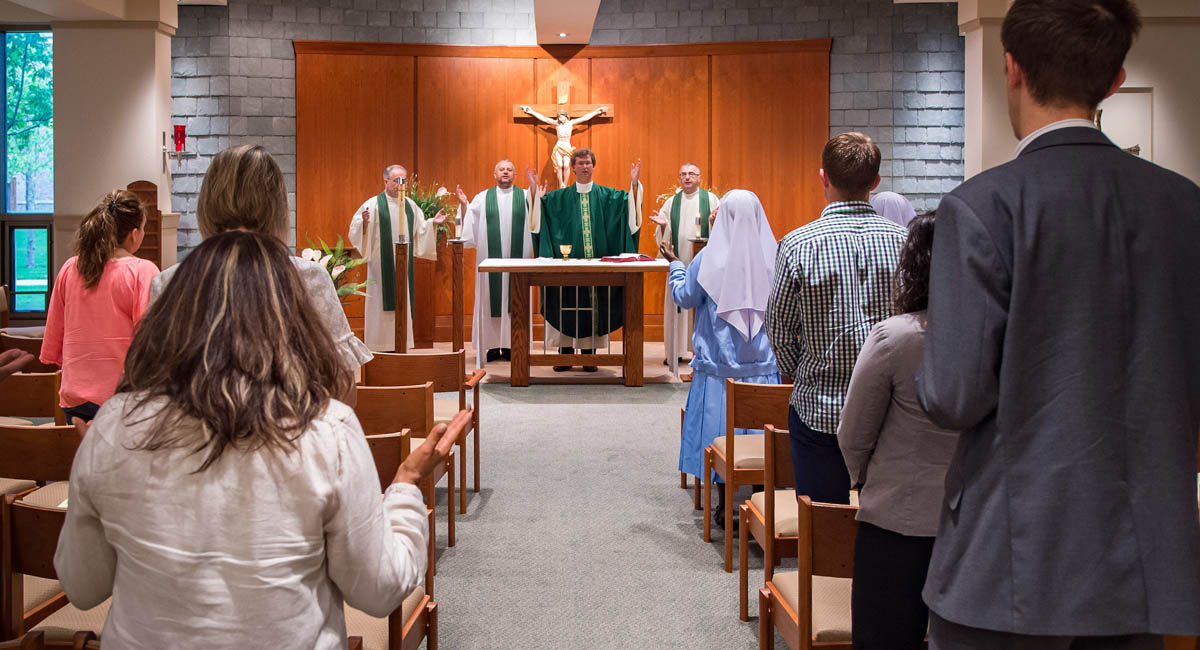Oleh Yaskiv, like his homeland in Ukraine, knows what it means to be pulled in two different directions.
Ukraine is the center of an active war between east and west, divided between its recent history as a sphere of Russia and the increasing influence and promise of Europe. Yaskiv, 45, and his native city of Lviv in western Ukraine have leaned toward Europe.
In his professional life, Yaskiv also has been torn — between hard science and cultural arts. He has studied and practiced applied physics for two decades, conducting research on nuclear power and on titanium alloys for use in the aviation industry.
But he never stopped participating in the rebuilding of Ukrainian culture after decades of Soviet domination, from political activism to documentary film production to the reorganization of a Ukrainian program similar to the Cub Scouts. Yaskiv recently re-routed his career, taking a position as director of the new Sheptytsky Information Resource Center Library at the Ukrainian Catholic University.
“My entire life I dedicated to science,” he said. “It was not a simple decision for me, but I hope to go on with both my scientific and cultural activities. That’s why I had the idea for an inter-disciplinary course on the philosophy of science and culture.”
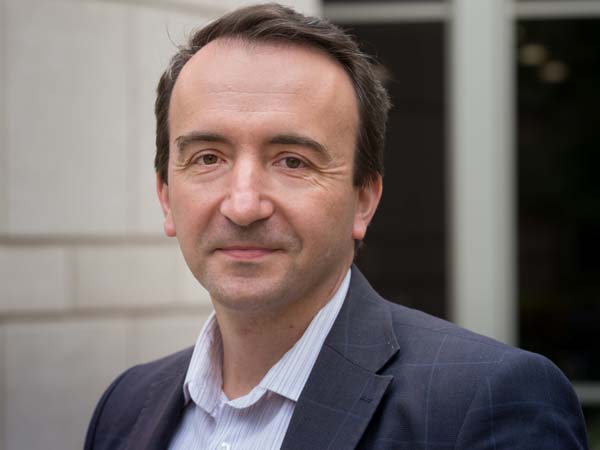
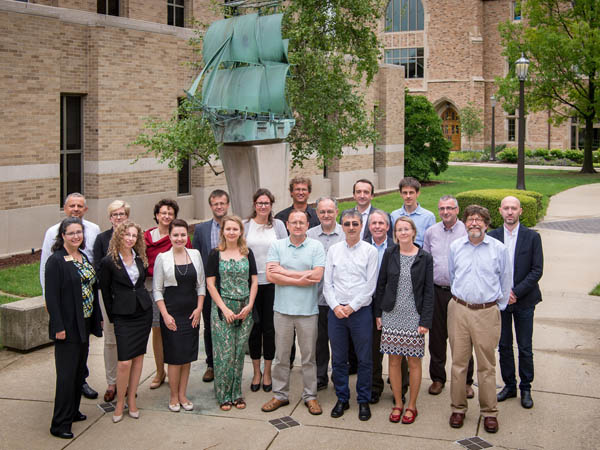
Preparing that course and the opening of the new library — with its stated aim of providing educational, scientific and cultural programs that strengthen the Ukraine — brought Yaskiv to Notre Dame for extensive research and training this summer.
He is one of 17 Catholic leaders from Central and Eastern European countries who participated in a weeklong program on nonprofit administration in July with 38 other leaders from around the world. Sponsored by the Nanovic Institute for European Studies and conducted by the Mendoza College of Business, the Catholic Leadership Institute brought together Catholic university leaders from Croatia, Georgia, Hungary, Poland, Slovakia and Ukraine.
A. James McAdams, director of the Nanovic Institute and William M. Scholl Professor of International Affairs, said he and his colleagues have been building relationships with these Catholic universities for more than a decade, specifically reaching out to those in the former Soviet bloc that are still “wrestling with the aftermath of decades of communist rule.”
“For the first time, we are bringing the current and future leaders of these institutions to Notre Dame with the expressed aim of exposing them to the practical aspects of university administration,” McAdams said. “The Institute provides the opportunity to reflect along with them about the challenges we all face in maintaining our distinctive identities in a secular age.”
Yaskiv’s story is unique yet represents a struggle common to this group of East European leaders.
As a teenager in the late 1980s, he helped found a secret anti-Soviet political group in his secondary school in Lviv. The teens produced a handwritten newspaper aimed at popularizing Ukrainian history and culture distinct from Soviet or Russian influence. Though they used nicknames, others at the school knew he was the group’s leader.
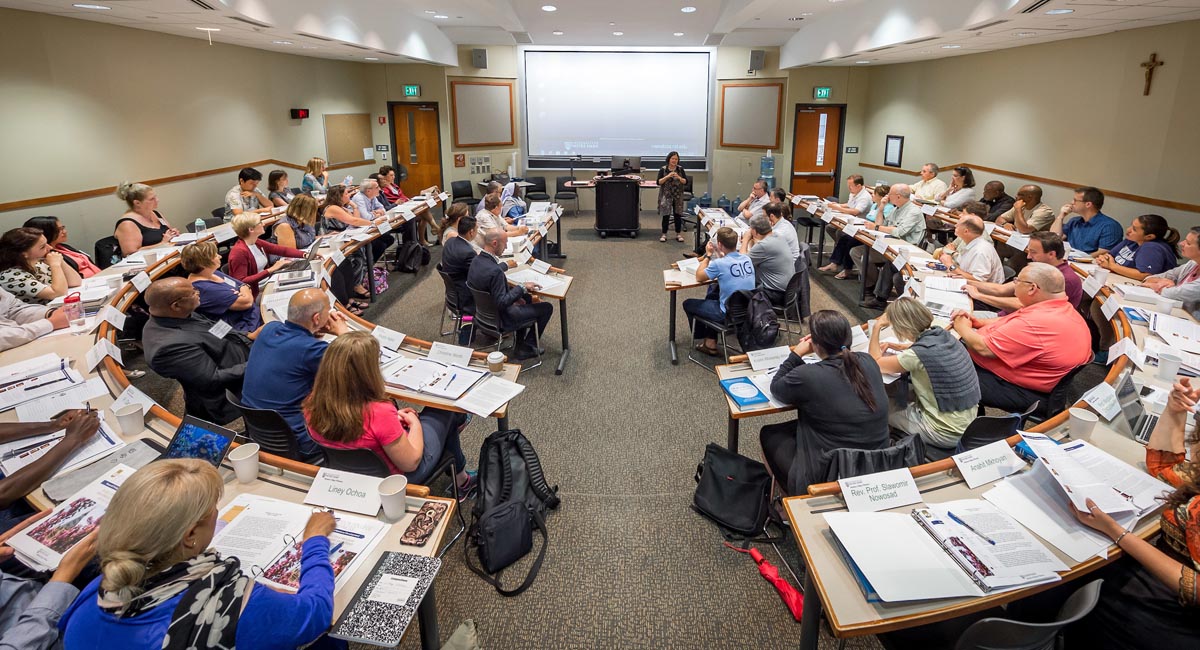
“I remember preparing in my mind to be imprisoned by the Soviets in 1986,” Yaskiv said. “Since my early years, I’ve tried to be useful to my people.”
After the USSR dissolved, there was a power struggle between the forces of democracy and communism in Ukraine. At 18, he took part in hunger strikes for Ukrainian democracy and free elections. Tens of thousands of students participated in a protest he described as “romantic.” But it was only partly successful because the communist party retained power.
Ukraine’s history is nearly as tragic as it is long. Millions of Ukrainians died in both world wars, and millions more in the famines orchestrated by Soviet agricultural planning. Ukraine, once known as the breadbasket of the Russian Empire, has been occupied or controlled by other powers throughout most of its history and has not always had a distinct identity.
Yaskiv threw himself into studying science and got involved in Plast, a Ukrainian scouting group the Soviets had forbidden, as a way to teach outdoors skills and values to kids. “It was an organization that created leaders who could fight for independence,” he said.
Appreciating and maintaining Ukraine’s language, history and culture are important parts of creating a national identity that the Soviet Union tried to stamp out, he said. He compared his country’s efforts to the Celtic Revival, when Irish artists and writers stoked national sentiment by reclaiming their language, myths and history after the British nearly destroyed their culture.
Along similar lines, Yaskiv directed documentaries about Plast, Ukrainian business leaders and other nationalist topics. He helped found think tanks and other nonprofits, such as an international effort to improve the maintenance of cemeteries where Ukrainians are buried.
As a scientist, he rose to the position of deputy director of research at the Karpenko Physico-Mechanical Institute, a large research institution in Lviv. Resources were a constant challenge. “Many smart and good scientists from Ukraine leave for Europe to find better conditions,” he said.
Politically, the country veered back and forth between pro-Russian and pro-European leaders. When Russia annexed Crimea and stoked a separatist revolt in east Ukraine in 2014, Yaskiv said he was ready to go to war, “but I felt I could do more as a researcher with the Institute.”
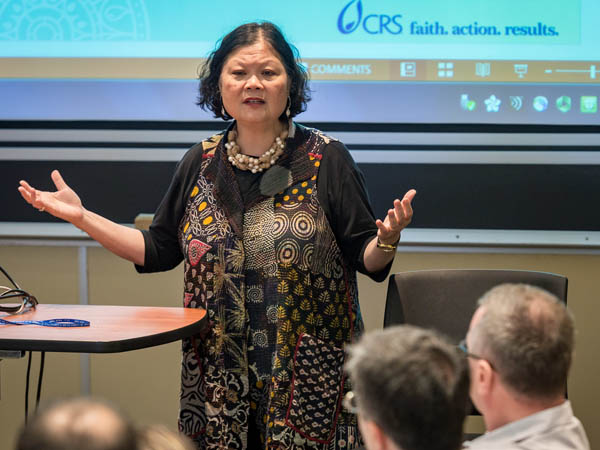
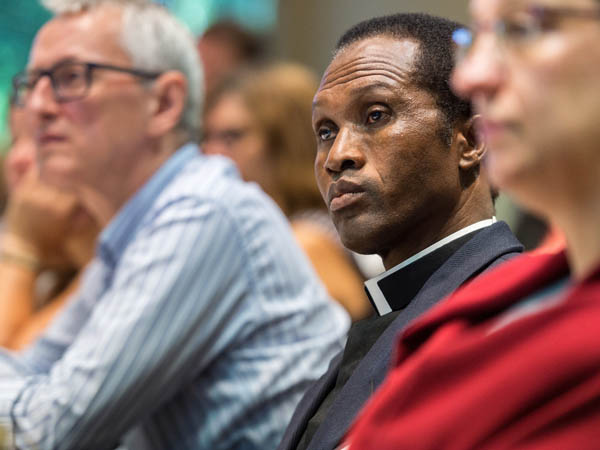
Then came the opportunity to open a new library, which is an important storehouse of culture. Yaskiv said the Sheptytsky library at Ukrainian Catholic University is the first modern building dedicated to culture in two decades. Andrey Sheptytsky was an archbishop of the Ukrainian Greek Catholic Church in the early 20th century, famous there for his humanitarian works and his support for Ukrainian arts and culture. It is scheduled to open on Sept. 9.
“Our project focuses on education and culture, and it will inspire people in Ukraine to become stronger Europeans,” Yaskiv said.
After the Soviet breakup, he said libraries in Ukraine did not have the resources to modernize. They are behind in crucial areas like journal subscriptions and inter-library loans. Central and Eastern European academics who come to the United States often spend much of their time copying or scanning as many documents and publications as they can.
His own research at Notre Dame has included touring the entire Hesburgh Library and meeting with department directors to learn about areas such as special collections and digital services.
“I’ve established contacts with many librarians,” Yaskiv said. For instance, the Hesburgh Rare Books and Special Collections is interested in East European dissident writings. Who better to provide that treasure than someone who took part in it in high school?
The Catholic Leadership Institute represents an opportunity to expand these kinds of relationships, he said. And in countries that are being pulled in different directions, university leaders need to be flexible and well-trained.
“We need to have good managers of education, not just good scientists and academics,” Yaskiv said. “Catholic universities in Ukraine and Eastern Europe, because of their collaboration and openness, have a good chance to be real leaders in education.”
